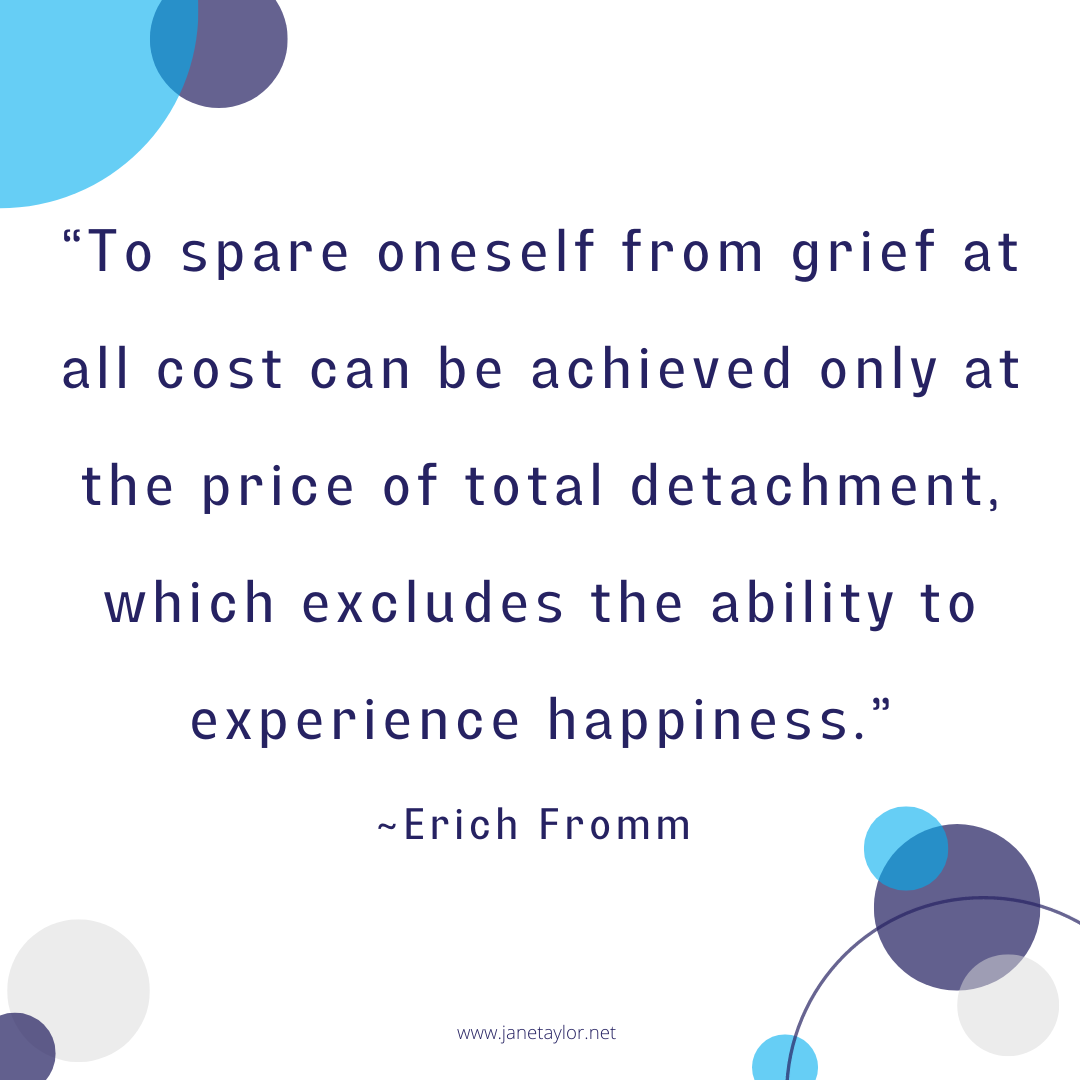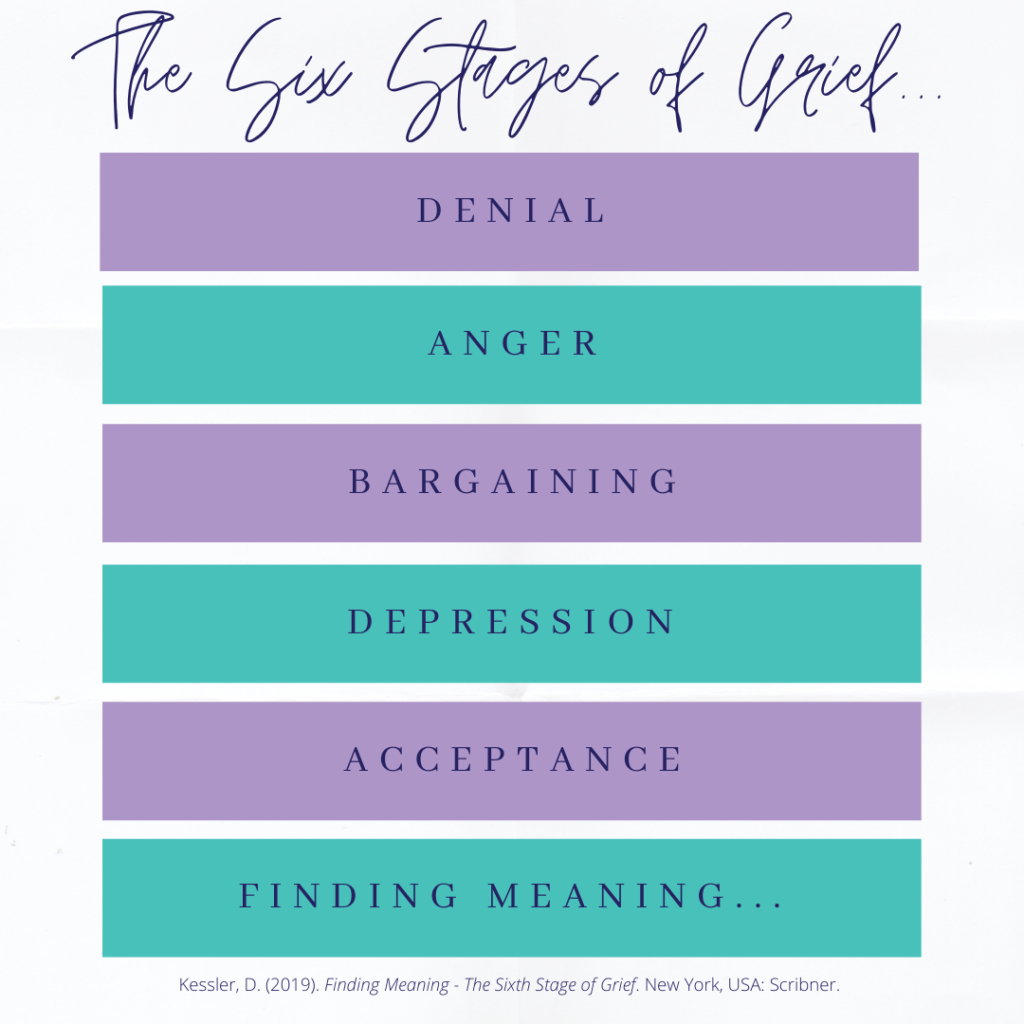The Sixth Stage of Grief – Finding Meaning

Grief and loss can be challenging for many of us. I don’t think I really knew too much about it growing up. However, later on in my life (maybe from about 30ish), I became acutely aware how much loss I had experienced (without actually realising it).
A few years back now, I wrote an article called – Coping with Grief and Loss – Insights in to the Grieving Process. If you are interested, please click here to read it. Today, I wanted to elaborate on that post and share about the Sixth Stage of Grief as it resonated with me when I heard it. However, before we start, let me share with you –
- What is Loss?
- What is Grief?
- What Types of Loss Can Cause Grief?
- The Original Five Stages of Grief,
- The Six Stage of Grief – Finding Meaning, and
- Some Insights in to Finding Meaning.
Let’s get started…
What is Loss?
Loss is being parted from someone or something that is really important to you. Loss can come into our lives in lots of ways, and it affects each of us differently.
What is Grief?
There are a number of definitions about grief, including –
- “…intense sorrow, especially caused by someone’s death.” ~ Google and Oxford Dictionaries
- “keen mental suffering or distress over affliction or loss; sharp sorrow; painful regret.” ~ Dictionary.com
- “deep sadness caused especially by someone’s death” ~ Merriam-Webster
- “The normal process of reacting to a loss. The loss may be physical (such as a death), social (such as divorce), or occupational (such as a job).” ~ MedicineNet.com
What Types of Loss Can Cause Grief?
Honestly – any type of loss can cause grief as grief is a reaction to a loss. Some examples of loss that can cause grief include –
- Losing or leaving a job,
- Death of someone you love,
- Divorce or relationship breakup,
- Retirement,
- Selling the family home,
- A pet passing,
- Getting injured (especially if an athlete),
- Loss of health,
- A significant person in your life getting sick or ill, and
- Loss of a friendship.
“The pain of the soul and heart is much more powerful that the pain of the body” ~ The Prophet.
The Original Five Stages of Grief
In her book On Death and Dying, Elisabeth Kübler-Ross discussed what the dying have to teach doctors, nurses, clergy, and their own families. The book is a discussion on some of the key emotional reactions to the experiences of the dying.
If you choose to read the book, you will see there are 5 stages that are described. The stages are used so the author can clearly articulate the experiences of the people she was learning from and they overlap. The five stages of grief are –
- Denial and isolation,
- Anger,
- Bargaining,
- Depression, and
- Acceptance.
You can see a visual of the diagram here.
The Sixth Stage of Grief – Finding Meaning
David Kessler has created the Sixth Stage of Grief. The sixth stage of grief evolved from the work of Kübler-Ross work after Kessler became a protege and friend of Kübler-Ross. They wrote two books together (Kessler 2019). In his book Finding Meaning – The Sixth Stage of Grief, Kessler clearly articulates the five stages –
- “Denial: shock and disbelief that the loss has occurred,
- Anger: that someone we love is no longer here,
- Bargaining: all the what-ifs and regrets,
- Depression: sadness from the loss,
- Acceptance: acknowledging the reality of the loss.” (p. 1)
After Kessler experienced a significant loss of his own, he came to realise there was a six stage – meaning. Meaning –
“allows us to transform grief in to something else, something rich and fulfilling.” (Kessler, 2019).
Finding meaning takes time and depends on the loss and the situation / person. However, over time, finding meaning can help to start to find a path forward. Meaning can take on many forms, including gratitude for the time you had with loved ones to acknowledging the fragility and value of life. Kessler (2019) says that people –
“who are able to find meaning tend to have a much easier time grieving than those who don’t. (And) they’re less likely to remain stuck in one of the five stages.” (p.3).
Some Insights into Finding Meaning
It is important to remember that grief and loss is complex process. For me personally finding meaning in my own experiences of grief and loss has been useful. However, for some of the losses it took me a long while to discover any meaning, so be compassionate to yourself!). A few insights that might help with finding meaning include –
- We all respond to changes in our life in different ways – there is no right or wrong way to find meaning. There is also no timeframe to grieving and / or finding meaning.
- You are the only one who can find the meaning.
- Being able to acknowledge and accept the significance of a loss is important and helps to find meaning.
- “Meaning doesn’t require understanding. It is not necessary to understand why someone died in order to find meaning” (Kessler 2019).
- “Your lost is not a test, a lesson, something to handle, a gift or a blessing. Lost is simply what happens to you in life. Meaning is what you make happen.” (Kessler 2019).
Over to You…
I hope this has given you some insight in to the sixth stage of grief – finding meaning? If you have any questions, please ask them below or contact us. Also feel free to join our toolkit, to help you live with an open heart!
References –
Kessler, D. (2019). Finding Meaning – The Sixth Stage of Grief. New York, USA: Scribner.
Kübler-Ross, E. (1969). On Death and Dying: What the dying have to teach doctors, nurses, clergy, and their own families. New York, USA: Scribner.
